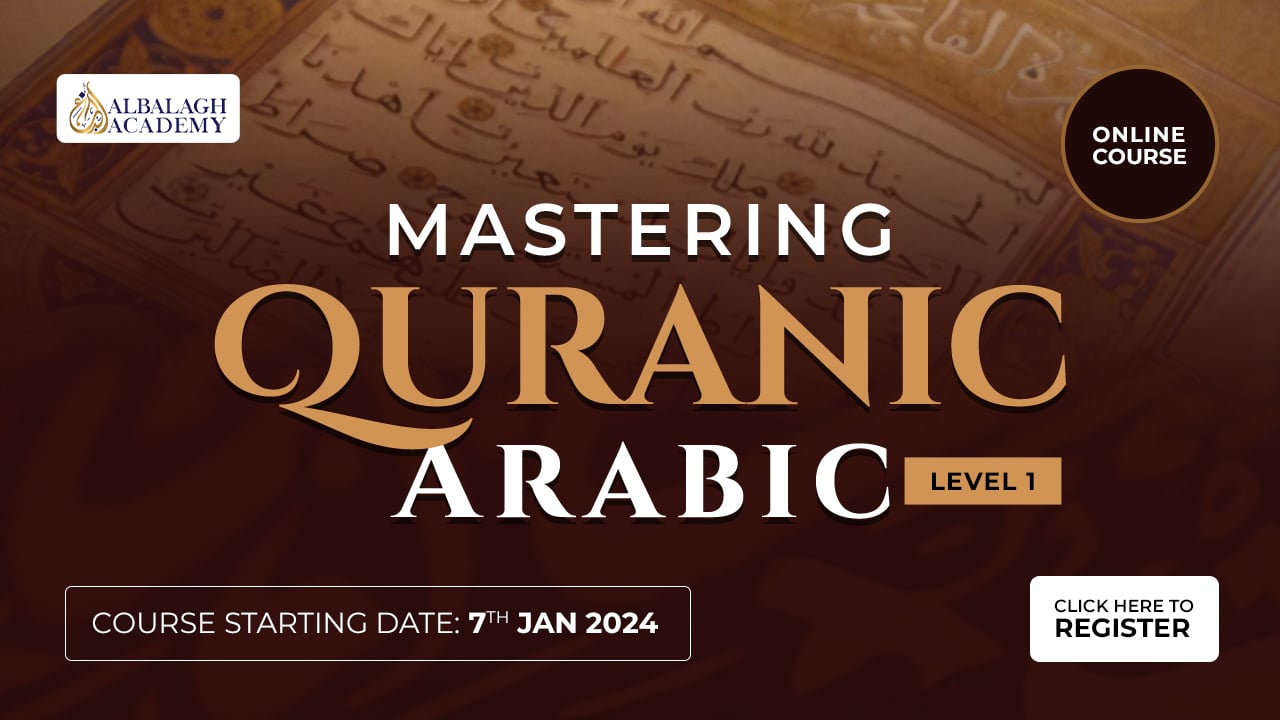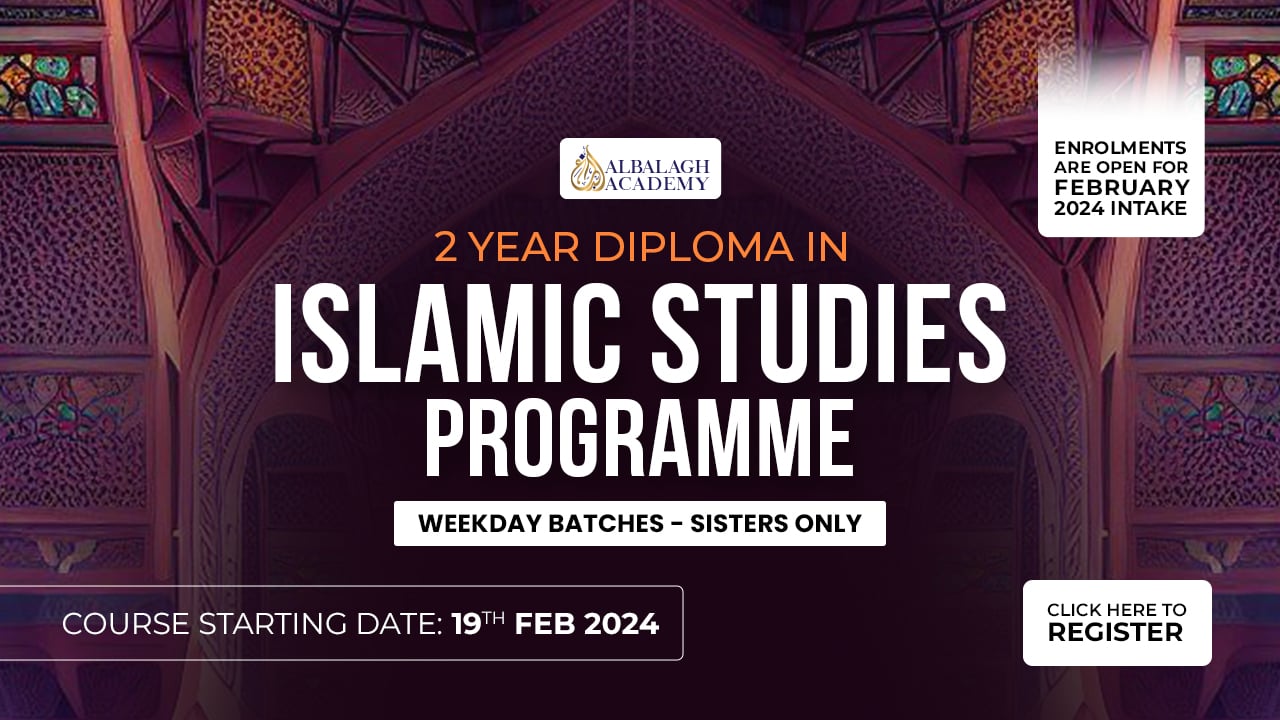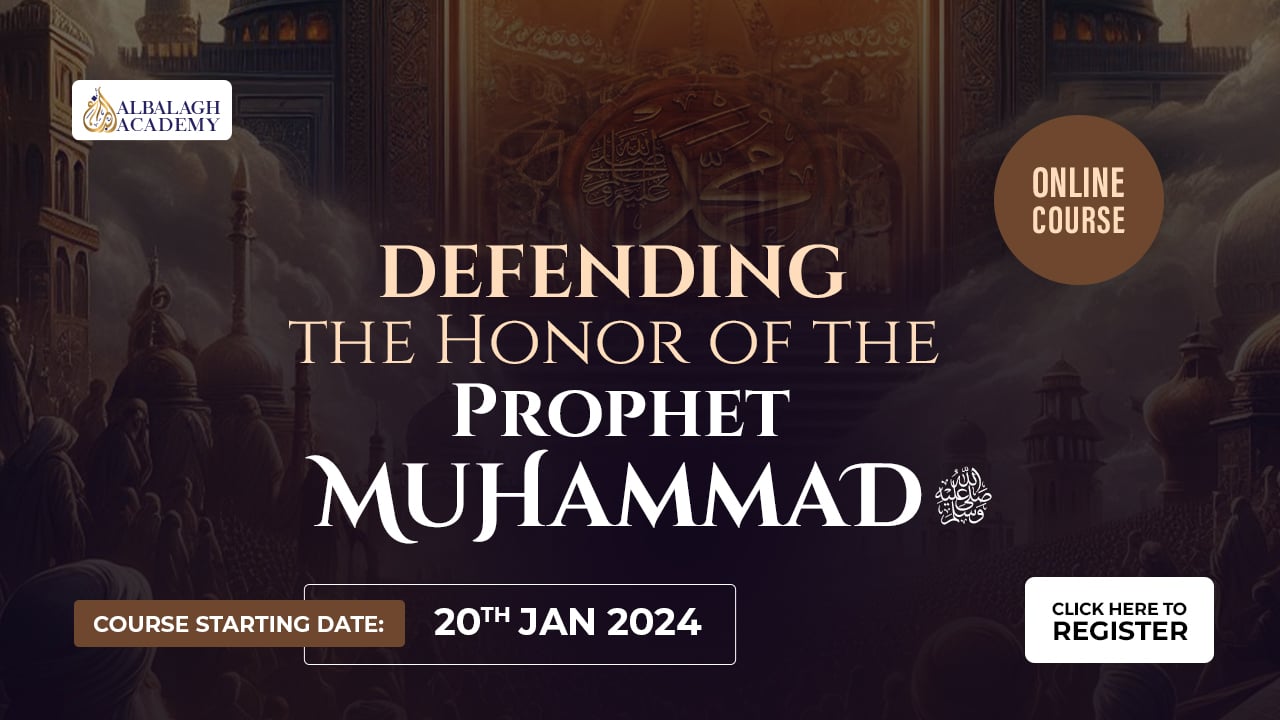Al Balāgh Online ʿĀlimiyyah Programme
(Accepting applications for May 2024 intake)
(Part time – Sisters )
Deadline:10th May 2024
Start Date:11th May 2024
Days: Sat and Sun (Weekend)
Time:
2 PM – 9 PM (London)
9 AM – 4 PM (New York)
8 AM – 3 PM (Chicago/Texas)
(We will follow London time after the
timezone shift)
(Part time – Brothers)
Deadline:10th May 2024
Start Date:11th May 2024
Days: Sat and Sun (Weekend)
Time:
2 PM – 9 PM (London)
9 AM – 4 PM (New York)
8 AM – 3 PM (Chicago/Texas)
(We will follow London time after the
timezone shift)
About The Programme
Al Balāgh Online Alimiyyah Programme is a comprehensive online course designed to empower Muslim individuals worldwide in the field of Islamic Scholarship. Our goal is to bridge the gap between traditional Muslim scholars and contemporary academics and professionals, as well as the divide between classical Islamic sciences and modern scientific research.
The Al Balāgh Online Alimiyyah Programme is open to both men and women, making it accessible to College/University Students, Housewives, Working Professionals, and Academics. Anyone aged 16 and above, with a passion for exploring traditional Islamic sciences and addressing contemporary challenges while seeking to follow in the footsteps of the Prophet (PBUH), is welcome to join our community of knowledge seekers.
Our curriculum follows the esteemed Dars-e-Nizāmi syllabus and comprises four levels, covering 15 essential traditional Islamic sciences at an advanced level. We aim to foster a deep understanding of the dynamic nature of Islamic sciences, including their theological and jurisprudential roots, in handling contemporary issues related to modern sciences.
The programme is unique in the sense that it will incorporate relevant contemporary Islamic literature coupled with relevant contemporary academic social, historical philosophical and scientific studies. The course will be delivered using a personal developmental, unique skills-focussed approach which will be guided through one-to-one mentorship.
This is an advanced specialist programme that will train academics,professionals and passionate learners to achieve an in-depth grasp and understanding of the dynamic nature of the Islamic sciences, with their associated theological and jurisprudential roots, in handling issues related to modern sciences. The course will have an initial Ḥanafī school focus but will require scholars to be competent enough to be able to provide generic opinions from all sunnī schools of thought in the more advanced years. This is an excellent opportunity for interested individuals to be important drivers and enablers in the synergy of the Islamic tradition with modern sciences. Graduates will have an excellent opportunity to gain significant advantage in their future prospects having graduated with shahādah (certification) and ijāza (authorization) in a number of Islamic disciplines and classical texts from qualified traditional and renowned Muslim scholars and academics. They will be part of the international Muslim network of ʿUlama working in the domain of merging Islamic tradition with modern sciences.
Testimonials
AT A GLANCE
Completely online
Flexible
8+ Weekly Hours

Mobile App
10+ Learning Streams
Start your application
Next intake starts on 11th May 2024
Course Fee (Part-Time):
Apply Now
(scholarship available for those students who can’t afford the fee)

Want to learn more before applying?Download the Syllabus Now
After answering a few short questions, we’ll be able to help you find out if you’re qualified to apply and give you more information about the degree program.meanwhile you can browse our syllabus by filling the form.

Online Alimiyyah Syllabus
Part-Time | 4 Levels | 10+ Learning Streams | Flexible Duration
A Part-time
ʿĀLIMIYYAH FOUNDATION
الشهادة الثانوية العامة في العلوم الاسلامية واللغة العربية
Level 1 | 50+ Courses |
4 Semesters | 2 Years
Click to View the Syllabus >>
ʿALMIYYAH INTERMEDIATE
الشهادة الثانوية الخاصة في العلوم الاسلامية واللغة العربية
Level 2 | 50+ Courses |
4 Semesters | 2 Years
Click to View the Syllabus >>
ʿĀLIMIYYAH ADVANCED
الشهادة الثانوية الخاصة في العلوم الاسلاميةو واللغة العربية
Level 3 | 50+ Courses |
4 Semesters | 2 Years
Click to View the Syllabus >>
ʿĀLIMIYYAH FINAL (Daurah Hadith)
الشهادة العالمية والإجازة العالية في العلوم الإسلامية
Level 4 | 10+ Courses |
4 Semesters | 2 Years
Click to View the Syllabus >>
ʿĀLIMIYYAH FOUNDATION
الشهادة الثانوية العامة في العلوم الاسلامية واللغة العربية
Level 1 | 4 Semesters | 2 Years
Click to Expand Syllabus >>
ʿĀLIMIYYAH FOUNDATION SYLLABUS
- Islamic Theology & ‘Aqīdah Studies
- Qur’ānic Studies
- Ḥadīth Studies
- Fiqh & Contemporary Fiqh Studies
- Arabic Language
- Tajwīd & Hifz
- Sīrah & Islamic History
- Tazkiyah Studies
- Western Studies
- Skills Development
COURSE
1
Introduction to Islamic Theology
(ʿĪlm al-Kalām) (Level 1)
COURSE
2
Fundamental Principles of Islamic Creed (al-ʿAqīdah al-Ṭaḥāwiyah)
Fundamental Principles of Islamic Creed
(al-ʿAqīdah al-Ṭaḥāwiyah)
COURSE
3
Introduction to Islamic Philosophy
Core Texts:
al-ʿAqīdah al-Ṭaḥāwiyah
Course Notes
COURSE
1
Qur’ān Translation (400+ selected Verses)
Qur’ān Translation
(400+ selected Verses)
COURSE
2
Tafsir Al Qur'an Al Karim (40+ Selected Surahs)
Tafsir Al Qur'an Al Karim
(40+ Selected Surahs)
COURSE
3
ʿUlūm al-Qur’ān
(Introduction to Quranic Studies)
COURSE
4
Qur’ānic Literature -Level 1
COURSE
5
The Qur’ān & Modern Science
COURSE
6
The Jewels of the Qur’ān (Jawāhir al-Qur’ān- Imām al-Ghazālī)
COURSE
7
Atlas of the Qur’ān
Core Texts:
Introduction to Quranic Sciences – Taqi Usmani
Jawāhir al- Qur’ān – Ghazālī
Maʿrif al-Qur’ān (English)
Atlas of the Quran
COURSE
1
COURSE
2
Ḥadīth Studies
COURSE
3
The Authority of Sunnah
COURSE
4
Development of Sciences of Ḥadīth (Tadween al Hadith)
COURSE
5
Ḥadīth Literature -Level 1
COURSE
6
The Aḥadīth of Medicine
COURSE
7
Riyāḍ al-Ṣālihīn (Selected)
COURSE
8
Al Adab al Mufrad (selected) - Level 1
Core Texts:
Al-Arbaʿīn al- Nawawī (Imām al- Nawawī)
Riyāḍ al-Ṣālihīn - Imām al-Nawawī (The Books of Miscellany and Etiquettes, The Book of Virtues, The Books of Knowledge, Praise and Supplication, The Books of the Remembrance, Prohibited Actions and Significant Values)
A Text Book on Hadith Studies-Kamali ( Selected Chapters)
Authority of Sunnah – Taqi Usmani
Kitāb al-Ṭibb (Ṣaḥīḥ al-Bukhārī)
Al-Adab al-Mufrad (Bukhari)
COURSE
1
Al Fiqh ul Muyassar
COURSE
2
Fiqh Studies - Level 1
COURSE
3
Fiqh Literature - Level 1
COURSE
4
Essential Fiqh (Substantive Law)
COURSE
5
The Fiqh of Halal Food
COURSE
6
The Fiqh of Business
COURSE
7
The Fiqh of Women
COURSE
8
The Fiqh of Halal & Haraam
Core Texts:
Al-Marāqī al-Saʿādāt (Ascent to Felicity)- Shurunbulālī
Contemporary Fatawa – Taqi Usmani
Halal & Haram – Qarḍāwī
Principles of Islamic Jurisprudence – Hashim Kamali
COURSE
1
Mastering Arabic 1
Mastering Arabic 1
COURSE
2
Mastering Arabic 2
Mastering Arabic 2
COURSE
3
Mastering Arabic Grammar
Mastering Arabic Grammar
COURSE
4
Mastering Arabic Script
Mastering Arabic Script
COURSE
5
Speaking Arabic (Based on Arabiyyah Bayna Yadayk)
Speaking Arabic
(Based on Arabiyyah Bayna Yadayk)
COURSE
6
Arabic Grammar (Based on Al Ajrumiyyah)
Speaking Arabic
(Based on Arabiyyah Bayna Yadayk)
COURSE
7
Fundamentals of classical Arabic
Fundamentals of classical Arabic
Core Texts
Arabic Grammar based on Al Ajrumiyyah
Mastering Arabic 1 (Jane Wightwick & Mahmoud Gaafar)
Mastering Arabic 2 (Jane Wightwick & Mahmoud Gaafar)
Mastering Arabic Grammar (Jane Wightwick & Mahmoud Gaafar)
Mastering Arabic Script (Jane Wightwick & Mahmoud Gaafar)
Mastering Arabic Vocabulary & Pronunciation (Jane Wightwick & Mahmoud Gaafar)
Al Arabiyyah Bain Yadaik
Fundamentals of Classical Arabic
COURSE
1
Tajwid (Theory)
COURSE
2
Tajwid (Practical)
COURSE
3
Ḥifẓ(Selected Surah)
COURSE
1
Al Sīrah al-Nabawiyyah Level-1
COURSE
2
The History of Ṣaḥābah
COURSE
3
Great Islamic Figures – Level 1
COURSE
4
Islamic Historical Literature
COURSE
5
Islamic History Level 1
Core Texts:
Muhammad: His Life Based on the Earliest Sources - Martin Lings
The Noble Life of the Prophet(Peace Be Upon Him) - Dr Ali As Sallaabee
Saviours Of Islamic Spirit (Selected)-Shaykh Abul Hasan Ali Nadwi
Ḥayāt al-Ṣaḥāba – Kandhalwi
COURSE
1
Iḥyāʿ ʿUlūm al-Dīn – Ghazālī
COURSE
2
Tazkiya Studies - Level 1
COURSE
3
Study of Purification of the Heart
Core Texts:
Iḥyāʿ ʿUlūm al-Dīn – Ghazālī
COURSE
1
Decoding Modern Ideologies and Islamic Worldviews
COURSE
2
Feminism and Islam
COURSE
3
Islam and Politics
COURSE
4
Atheism and Islam
COURSE
5
Philosophy of Science and Religion
COURSE
6
Islam, Muslims and the West
COURSE
1
Presentation Skills
COURSE
2
Academic English
COURSE
3
Academic Research
COURSE
4
Public Speaking
COURSE
5
Social Media Skills
COURSE
6
IT & Islamic Research
COURSE
7
Imām Training
ʿALMIYYAH INTERMEDIATE
الشهادة الثانوية الخاصة في العلوم الاسلامية اللغة العربية
Level 2 | 4 Semesters | 2 Years
Click to Expand Syllabus >>
ʿALMIYYAH INTERMEDIATE SYLLABUS
- Islamic Theology & ‘Aqīdah Studies
- Qur’ānic Studies
- Ḥadīth Studies
- Fiqh Studies
- Arabic Language
- Tajwīd & Hifz
- Sīrah & Islamic History
- Western & Social Studies
- Tazkiyah Studies
- Skills Development
- Arabic & Western Logic
COURSE
1
Al Fiqh Al Akbar – Imam Abu Hanifa
Al Fiqh Al Akbar – Imam Abu Hanifa
COURSE
2
Hujjat Allah Al Baligha
Hujjat Allah Al Baligha
COURSE
3
Islamic Theology-Level 2
Islamic Theology-
Level 2
COURSE
4
Muslim Sects - A Historical and Theological Approach
Muslim Sects
A Historical and Theological Approach
Core Texts:
Al Fiqh Al Akbar – Imam Abu Hanifa, Hujjat Allah Al-Bāligha
COURSE
1
Qur’ān Translation (800+ selected Verses)
Qur’ān Translation
(800+ selected Verses)
COURSE
2
Tafsir Al Qur'an Al Karim (40+ Selected Surahs)
Tafsir Al Qur'an Al Karim (40+ Selected Surahs)
COURSE
3
Uṣūl al-Tafsīr
Uṣūl al-Tafsīr
COURSE
4
Al-Tibyān fī ʿUlūm al-Qurān
Al-Tibyān fī ʿUlūm al-Qurān
COURSE
4
Muslim Sects - A Historical and Theological Approach
Muslim Sects
A Historical and Theological Approach
COURSE
5
Qurʿānic Literature – Level 2
Qurʿānic Literature
Level 2
COURSE
6
The Qurʿān & Modern Science
The Qurʿān & Modern Science
COURSE
7
The Qur’ān, Biblical studies, Historical Criticism
The Qur’ān,
Biblical studies,
Historical Criticism
COURSE
8
The Qur’ān, Orientalism and Contemporary Authors
The Qur’ān,
Orientalism and Contemporary Authors
COURSE
9
Thematic Study of the Qur’ān
Thematic Study of the Qur’ān
Core Texts:
Al-Fawz al-Kabīr
Tafsīr Ibn Kathīr Al-Tibyān fī ʿUlūm al-Qur’ān
Maʿārif al- Qur’ān
COURSE
1
Al-Adab al-Mufrad Level 2
COURSE
2
Ḥadīth Studies (Level 2)
Ḥadīth Studies
(Level 2)
COURSE
3
Ḥadīth Literature (Level 2)
Ḥadīth Literature
(Level 2)
COURSE
4
Development of Science of Ḥadīth (Tadween al Ḥadīth)
Development of
Science of Ḥadīth
(Tadween al Ḥadīth)
COURSE
5
Al-Sunnah wa Makānatuhā fī Tashrīʿ al-Islāmī
Al-Sunnah wa
Makānatuhā fī Tashrī
ʿ al-Islāmī
COURSE
6
Ḥadīth, Orientalism and Contemporary Writers
Ḥadīth, Orientalism and
Contemporary Writers
COURSE
7
The Aḥadīth of Medicine
The Aḥadīth
of Medicine
Core Texts:
Al-Adab al-Mufrad (Bukhari)
A Text Book on Hadith Studies - Kamali(Selected chapters)
Al-Sunnah wa Makānatuhā fī Tashrīʿal-Islāmī
Hadith literature - Its Origins,Developments and Special Features-Z. Siddiqi
COURSE
1
Nūr al-Īḍāḥ
Nūr al-Īḍāḥ
COURSE
2
Mukhtaṣar al-Qudūrī
Mukhtaṣar al-Qudūrī
COURSE
3
Fiqh Studies-Level 2
Fiqh Studies-
Level 2
COURSE
4
Ḥanafī School of Fiqh-Level 1
Ḥanafī School of
Fiqh-Level 1
COURSE
5
Fiqh Literature-Level 2
Fiqh Literature-
Level 2
COURSE
6
Al Mūjaz Fī Usūl al-Fiqh
COURSE
7
Essential Islamic Fiqh (Advanced)
Essential Islamic
Fiqh (Advanced)
COURSE
8
The Fiqh of Halal Food
COURSE
9
The Fiqh of Business (Advanced)
The Fiqh
of Business
COURSE
10
Contemporary Fiqh & Fatawa
Contemporary Fiqh
& Fatawa
COURSE
11
The Fiqh of Women
Core Texts:
Nūr al-Īḍāḥ Mukhtaṣar
al-Qudūrī
Al-Mūjaz Fī Uṣūl al-Fiqh
Buḥūth fī Qaḍāyā Fiqhiyyah Maʿāṣarah (Uthmanī)
Principles of Islamic Jurisprudence – Kamali
Sharia Law (An introduction) –Kamali
Al-Madhhab al-Ḥanafi Marāḥilahu wa Tabaqātuhu ḍawābiṭuhu wa Muṣṭalaḥātuhu
Khaṣāi’ṣuhu wa Mua’llifātuhu
COURSE
1
Arabic Grammar (Level 3)
Arabic Grammar
(Level 3)
COURSE
2
Arabic Syntax (Level 3)
Arabic Syntax
(Level 3)
COURSE
3
Arabic Morphology (Level 3)
Arabic Morphology
(Level 3)
COURSE
4
Application of Tarkīb
Application of
Tarkīb
COURSE
5
Arabic Writing & Translation
Arabic Writing
& Translation
COURSE
6
Speaking Arabic
COURSE
7
Classical Arabic Literature (Advanced)
Classical Arabic
Literature
Core Texts:
Ilm al Sīghah
ʿIlm al-Ṣarf
al-Ājarūmiyyah Ḥidāyat al-Naḥw
Al-Kāfiya
Nafḥat al-ʿArab
COURSE
1
Tajwīd Theory (Level 3&4)
Tajwīd Theory
(Level 3&4)
COURSE
2
Tajwīd Practice (Level 3&4)
Tajwīd Practice
(Level 3&4)
COURSE
3
Hifz (Level 3&4)
Hifz
(Level 3&4)
COURSE
1
Al-Sirāt Al-Nabawiyyah – Shaykh Abul Hasan Ali Nadwi
Al-Sirāt Al-Nabawiyyah –
Shaykh Abul Hasan
Ali Nadwi
COURSE
2
The Prophet Muhammad (S.A.W), Orientalism and the West
The Prophet
Muhammad (S.A.W),
Orientalism and
the West
COURSE
3
The History of Great Sahaba
The History of
Great Sahaba
COURSE
4
Al-Tārīkh al-Islāmī al-Wajīz
Al-Tārīkh al-Islāmī
al-Wajīz
COURSE
5
Great Islamic Figures – Level 2
Great Islamic Figures
– Level 2
Core Texts:
Al-Sirāt Al-Nabawiyyah –Shaykh Abul Hasan Ali Nadwi
Saviours Of Islamic Spirit -Selected (Shaykh Abul Hasan Ali Nadwi)
Ḥayāt al-Saḥāba –Kandhalwi Al-Tārīkhal-Islāmī al-Wajīz
COURSE
1
Decoding Modern Ideologies and Islamic Worldviews (Level 2)
Decoding Modern Ideologies
and Islamic Worldviews
(Level 2)
COURSE
2
Islam and Evolution
Islam and
Evolution
COURSE
3
Feminism and Islam
Feminism and
Islam
COURSE
4
Islam and Politics
Islam and
Politics
COURSE
5
Islam, Muslims and the West
Islam, Muslims
and the West
COURSE
6
Islam and Sociology
Islam and
Sociology
COURSE
7
Islam Psychology and Counselling Level-1
Islam Psychology and
Counselling Level-1
COURSE
8
Islam and Science
Islam and
Science
COURSE
9
Islam and Society.
Islam and
Society.
COURSE
1
Madārij al-Sālikīn
Madārij
al-Sālikīn
COURSE
2
Tazkiya Studies (Level 2)
Tazkiya Studies - Level 2
COURSE
3
Al-Mathnawi
Al-Mathnawi
Core Texts:
Madārij al-Sālikīn - Ibn Qayyim al-Jawziyya
al-Mathnawi -Imām Rumī
COURSE
1
Presentation Skills -Advanced
Presentation Skills-
Advanced
COURSE
2
Academic English
Academic English
COURSE
3
Academic Research
Academic Research
COURSE
4
Communicating Effectively and Public Speaking
Communicating Effectively and
Public Speaking
COURSE
5
Social Media Skills – Advanced
Social Media
Skills – Advanced
COURSE
6
Motivational Skills & Dawah Training
Motivational Skills &
Dawah Training
COURSE
7
Home Science - Level 1
Home Science -
Level-1
COURSE
8
Critical Thinking and Logic
Critical Thinking
and Logic
COURSE
9
Leadership Training
Leadership Training
COURSE
10
Management
Management
COURSE
11
Critical Thinking and Logic
Critical Thinking
and Logic
COURSE
12
Islamic Emotional Literacy
Islamic Emotional
Literacy
COURSE
1
Arabic and Western Logic
Arabic and
Western Logic
COURSE
2
Arabic Logic: Al-Mirqāt
Arabic Logic:
Al-Mirqāt
Core Texts:
Sharh Mi’ati ʿĀmil
Al-Mirqāt (Complete)
Quṭbī (Selected)
Sullam al ʿUlūm (Selected)
Sharh Mi’ati ʿĀmil
ʿĀLIMIYYAH ADVANCED
الشهادة الثانوية الخاصة في العلوم الاسلاميةو اللغة العربية
Level 3 |4 Semesters | 2 Years
Click to Expand Syllabus >>
ʿALMIYYAH ADVANCED SYLLABUS
- Islamic Theology & ‘Aqīdah Studies
- Qur’ānic Studies
- Ḥadīth Studies
- Fiqh & Contemporary Fiqh Studies
- Arabic Language
- Arabic and Western Logic
- Tajwīd
- Sīrah & Islamic History
- Western & Social Studies
- Tazkiyah Studies
- Skills Development
COURSE
1
Islamic Theology - Level 3
Islamic Theology - Level 3
COURSE
2
Sharḥ Al-ʿAqā'id Al-Nasafiyyah
Sharḥ Al-ʿAqā'id Al-Nasafiyyah
COURSE
3
Muslim Sects – A Comparative Study
Muslim Sects –
A Comparative Study
COURSE
4
Global Religions – A Comparative Study
Global Religions –
A Comparative Study
Core Texts:
Hujjathullah Al Baligha, Sharḥ Al-ʿAqā'id Al-Nasafiyyah
COURSE
1
Jalalain (Part 1)
Jalalain
(Part 1)
COURSE
2
Jalalain (Part 2)
Jalalain
(Part 2)
COURSE
3
Uṣūl wa Qawā’id al-Tafsīr
Uṣūl wa Qawā’id
al-Tafsīr
COURSE
4
Manāhil al-Irfān fī ʿUlūm al-Qur’ān
Manāhil al-Irfān fī
ʿUlūm al-Qur’ān
COURSE
5
Quranic Literature (Level 3)
Quranic Literature
(Level 3)
COURSE
6
The Quran & Modern Science
The Quran &
Modern Science
COURSE
7
The Quran, Biblical Traditions, Historical Criticism
The Quran,
Biblical Traditions,
Historical Criticism
COURSE
8
The Quran, Orientalism and Contemporary Writers
The Quran,
Orientalism and
Contemporary Writers
Core Texts:
Tafseer al Jalalain
Manahil al Irfan fī ʿUlūm al-Qur’ān
Tafthir Ibn Kathir
COURSE
1
Tayseer Mustalah Hadith
Tayseer Mustalah
Hadith
COURSE
2
Nuzhat al Nazr wa Nukh Bat al Fikr
Nuzhat al Nazr
wa Nukh Bat
al Fikr
COURSE
3
Takhriij al Hadith
Takhriij
al Hadith
COURSE
4
Mishkat al Masabih (Part 1)
Mishkat al
ʿMasabih (Part 1)
COURSE
5
Mishkat al Masabih (Part 2)
Mishkat al
Masabih (Part 2)
COURSE
6
Hadith Literature – Classical and Contemporary (Level 3)
Hadith Literature –
Classical and Contemporary
(Level 3)
COURSE
7
Hadith Studies (Level 3)
Hadith Studies
(Level 3)
Core Texts:
Mishkat al Masabih
Tayseer Mustalah Hadith
Takhriij al Hadith
Nuzhat al Nazr wa Nukh Bat al Fikr
COURSE
1
Fiqh Studies (Level 3)
Fiqh Studies
(Level 3)
COURSE
2
Hermeneutics (Al-Adillatu al-Sharīʿah, Al-Aḥkām al- Sharīʿah , al-Qawā’id al-Uṣūliyāt al- Tashrīʿiyyah,, al-Taʿāruḍ, al-Tarjīḥ and al- Takhrīj ,Taqlīd and Ijtihād)
Hermeneutics (Al-Adillatu al-Sharīʿah,
Al-Aḥkām al- Sharīʿah ,
al-Qawā’id al-Uṣūliyāt
al- Tashrīʿiyyah, al-Taʿāruḍ,
al-Tarjīḥ and al- Takhrīj ,
Taqlīd and Ijtihād)
COURSE
3
Introduction to al Fiqh al Muqarin (Furu’)
Introduction to
al Fiqh
al Muqarin (Furu’)
COURSE
4
Al-Ḥidāya fī Sharḥ Bidāyat al-Mubtadi (Part 1)
Al-Ḥidāya fī Sharḥ
ʿ Bidāyat al-Mubtadi
(Part 1)
COURSE
5
Al-Ḥidāya fī Sharḥ Bidāyat al-Mubtadi (Part 2)
Al-Ḥidāya fī Sharḥ
Bidāyat al-Mubtadi
(Part 2)
COURSE
6
Al-Ḥidāya fī Sharḥ Bidāyat al-Mubtadi (Part 3)
Al-Ḥidāya fī Sharḥ
Bidāyat al-Mubtadi
(Part 3)
COURSE
7
Al-Ḥidāya fī Sharḥ Bidāyat al-Mubtadi (Part 4)
Al-Ḥidāya fī Sharḥ
Bidāyat al-Mubtadi
(Part 4)
COURSE
8
Al Siraji fil Miras
Al Siraji
fil Miras
COURSE
9
Fiqh Literature (Level 3)
Fiqh Literature
(Level 3)
COURSE
10
Usul al Shashi
Usul al
Shashi
COURSE
11
Nur al Anwar
Nur al
Anwar
COURSE
12
Contemporary Fiqh & Fatawa
Contemporary Fiqh
& Fatawa
COURSE
13
Islamic Medical Ethics and Law
Islamic Medical Ethics
and Law
COURSE
14
Islamic Finance and Economics
Islamic Finance
and Economics
COURSE
15
Determining Prayer and Fasting times
Determining Prayer and
Fasting times
COURSE
16
Fiqh for Muslim Minorities
Fiqh for Muslim
Minorities
COURSE
17
Menstruation
Menstruation
COURSE
18
Zakat Calculation
Zakat Calculation
COURSE
19
Islamic Family Law
Islamic Family
Law
Core Texts:
Al-Ḥidāya fī Sharḥ Bidāyat al-Mubtadi
Usul al Shashi
Nur al Anwar
Al Siraji fil Miras Buhus Qazaya Fiqhiyyah Muasarah – Usmani
COURSE
1
Advanced Arabic Grammar
Advanced Arabic
Grammar
COURSE
2
Application of Tarkīb
Application of
Tarkīb
COURSE
3
History of Arabic Language, Poetry, Rhetoric & Western Rhetoric
History of Arabic
Language, Poetry,
Rhetoric & Western Rhetoric
COURSE
4
Diwan al Mutanabbi (Selected Chapters)
Diwan al Mutanabbi
ʿ (Selected Chapters)
COURSE
5
Arabic Rhetoric
Arabic Rhetoric
COURSE
6
Maqamat al Hariri (Selected)
Maqamat al
Hariri (Selected)
COURSE
7
Sharh al Jami (Selected Chapters)
Sharh al Jami
(Selected Chapters)
COURSE
8
Arabic Writing & Translation Advanced
Arabic Writing &
Translation Advanced
COURSE
9
Arabic Speaking Advanced
Arabic Speaking
Advanced
COURSE
10
Modern Standard Arabic
Modern Standard
Arabic
COURSE
1
Arabic and Western Logic (Level 2)
Arabic and Western
Logic (Level 2)
COURSE
2
Philosophy of Mind Language, Science & Religion
Philosophy of
Mind Language,
Science & Religion
Core Texts:
Sharḥ Ibn ʿAqīl ʿala Alfiyya Ibn MāliK
Sharh al Jami : Arabic, Al-Mabādi fī ʿIlm al- Balāgha
Diwan al Mutanabbi
ʿIlm al-Ṣarf, Sharh Mi’ati ʿĀmil Mukhtasar al Maani
Talkhis al Miftah
COURSE
1
Tajwīd Theory (Level 5)
Tajwīd Theory
(Level 5)
COURSE
2
Tajwīd Practice (Level 5)
Hifz (Level 5)
COURSE
3
Hifz (Level 5)
Tajwīd Practice
(Level 5)
COURSE
1
Sīrah & Orientalism and Modern Challenges
Sīrah & Orientalism
and Modern Challenges
COURSE
2
The History of Great Sahaba – Level 3
The History of
Great Sahaba –
Level 3
COURSE
3
Great Islamic Figures – Level 3
Great Islamic
Figures – Level 3
COURSE
4
Al Tarikh al Islami al Wajeez
Al Tarikh
al Islami
al Wajeez
COURSE
5
Muqaddamah Ibn Khuldoon
Muqaddamah Ibn
Khuldoon
Core Texts:
Tareekh E Dawat o Azeemat (Shaykh Abul Hasan Ali Nadwi)
Hayatus Sahaba
Al Tarikh al Islami al Wajeez
COURSE
1
Decoding Modern Ideologies and Islamic Worldviews (Level 3)
Decoding Modern Ideologies
and Islamic Worldviews
(Level 3)
COURSE
2
Islam and Evolution
Islam and
Evolution
COURSE
3
Islam and Politics
Islam and
Politics
COURSE
4
Feminism and Islam
Feminism and
Islam
COURSE
5
Islam and Modern World
Islam and
Modern World
COURSE
6
Islam and Sociology
Islam and
Sociology
COURSE
7
Islam Psychology and Counselling Level-1
Islam Psychology and
Counselling Level-1
COURSE
8
Islam and Science
Islam and
Science
COURSE
9
Islam and Society - Level 2
Islam and
Society - Level 2
COURSE
1
The Tazkiya Studies (Level 3)
The Tazkiya Studies
(Level 3)
COURSE
2
Al Risala Al Queshariyah
Al Risala
Al Queshariyah
COURSE
1
Academic English Advanced
Academic English
Advanced
COURSE
2
Academic Research Advanced
Academic Research
Advanced
COURSE
3
Islamic Research Advanced
Islamic Research
Advanced
COURSE
4
Social Media Skills Expertise
Social Media
Skills Expertise
COURSE
5
Dawah Training Expertise
Dawah Training
Expertise
COURSE
6
Home Science - Level 2
Home Science -
Level-2
ʿĀLIMIYYAH FINAL (Daurah Hadith)
الشهادة العالمية والإجازة العالية في العلوم الإسلامية
Level 4 | 4 Semesters | 2 Years
Click to Expand Syllabus >>
ʿĀLIMIYYAH FINAL (Daurah Hadith)
COURSE
1
Ṣaḥīḥ al-Bukhārī (Complete)
Ṣaḥīḥ al-Bukhārī
(Complete)
COURSE
2
Sahih Muslim (Complete)
Sahih Muslim
(Complete)
COURSE
3
Jami al-Tirmidhi (Complete)
Jami al-Tirmidhi
(Complete)
COURSE
4
Sunan Abi Dawood (Complete)
Sunan Abi Dawood
(Complete)
COURSE
5
Sunan an-Nasa'i (Complete)
Sunan an-Nasa'i
(Complete)
COURSE
6
Sunan Ibn Mājah (Complete)
Sunan Ibn Mājah
(Complete)
COURSE
7
Sharh Ma'aani al Athaar ( Selected )
Sharh Ma'aani al Athaar
( Selected )
COURSE
8
Shama'il at-Tirmidhi (Complete)
Shama'il at-Tirmidhi
(Complete)
COURSE
9
Mu'atta Imam Malik ( Selected )
Mu'atta Imam Malik
( Selected )
COURSE
10
Mu'atta Imam Mohammad ( Selected )
Mu'atta Imam Mohammad
( Selected )
COURSE
11
Musnad Imam Abu Hanifah ( Selected)
Musnad Imam Abu Hanifah
( Selected)
COURSE
12
Musnad Ahmad ibn Hanbal ( Selected)
Musnad Ahmad ibn Hanbal
( Selected)
COURSE
13
Musnad al-Shafi'I ( Selected)
Musnad al-Shafi'I
( Selected)
ENTRY REQUIREMENT
Eligibility criteria:
-
16+ years of age.
-
Fluent in the English language.
The aspiring students should be either:
-
Housewives
-
College or University Students
-
Having a bachelor’s degree or master’s degree
-
Academics (Currently in the professional academic role or associated with any academic institute)
-
Working Professionals (those with a professional skill-based career such as Medical Professionals, Accountants, IT Professionals, Lawyers, Journalists etc.)
-
Those who have experience in any Islamic daʿwah or social welfare organization
Note: Students are expected to know the Arabic alphabet & be able to read the Qur’an fluently.
The programme is exclusively tailored to provide students with an opportunity to develop advanced expertise in Islamic Sciences in a short period.
Currently, we are accepting applications for Level 1, but If you are interested in Level 2 or Level 3 and have prior qualification in the field based on pursuing Alimiyyah or Arabic programme elsewhere, then kindly include information of your prior study subjects history in detail and attach the transcripts in the application. After receiving your application, our admission team will make a decision based on your merits and also arrange assessment meeting after your enrollment.
Note: Timings given on website are of beginner level classes. Advanced students classes timings can be different as we have limited students from different timezones, hence you are advised to expect flexible schedule for advanced classes. You can also add details of all your available timings in the application form so that Admission team can update you if we are planning to offer advanced classes in your suitable time frame.
Advanced classes are suggested based on your proficiency assessment meeting with Ustad/Ustadah
For any queries contact our Admission team on +447946835804
Application Process
For direct entry, apply and attach all supporting documents as outlined in the admission requirements. The admissions team will assess your application and advise on next steps.
Our distinctive approach relates to our four-level structure, making it more holistic and flexible. The Programme has been divided into four levels:
Alimiyyah Foundation
Alimiyyah Intermediate
Alimiyyah Advanced
Daurah Hadith
In the Part time programme, there will be 4 semesters in every level.
In the Full time programme, there will be two-three semesters in every level.
The programme will be delivered in a series of live online classes, tutorials, presentation based lectures, textbook-based traditional lectures, seminars, and workshops, all delivered live online. The recordings will be uploaded onto our myAlbalagh student’s learning portal (24/7 Accessibility from a web browser and Mobile App) for students to review and revise at their own pace and convenience.
Year I of this programme will broadly cover the foundational Arabic language, Qur’anic studies, Hadith Studies, Islamic Fiqh, Islamic History Seerah, Tazkiya, Aqeedah, Islamic Theology, Philosophy and other essential Islamic subjects.
The whole course is taken online and offers a flexible way to study while maintaining work and personal commitments. It consists of the following key approaches:
- Classical Texts: Students will study the classical texts from beginner level to advanced levels to gain familiarity with classical books on multiple disciplines written by renowned Shariah scholars. Students will explore over 100+ classical textbooks during the programme.
- Presentation Based Lectures: There will be many courses every semester that will be delivered through presentations to support easier learning and to assure that students who learn visually can benefit.
- Live Online Sessions: There will be regular weekly live interactive online classes to discuss topics raised with case studies where appropriate. You are encouraged to discuss cases during the live interactive sessions, ask questions and raise important points for feedback. This interactive session will be a key component of the learning process and the more you can engage with your lecturer, the more productive and enjoyable your learning will be.
- Video Recordings: The live session will be recorded, and you can access these recordings on the website. This will make it easy for students to revise and make notes later.
- Online Course Material: In every course, your lecturer will suggest further reading material that you can review, print, read, and engage with, prior to the live session. This course material may be in the form of articles, case scenarios with questions, or recorded videos.
- Online Learning Activities and Online Assessments: In every course, there will be a variety of online learning activities, practical assignments, Module Assessments (graded or ungraded) to help you revise, reflect and gain a pragmatic approach and understanding to the subject.
- Discussion with Fellow Learners: Discussion with fellow learners is another important component of your development. In our course-specific WhatsApp groups, and our regular online Muzakarah sessions, students can review their course material and class with other learners, and share ideas with fellow students.
- Students Seminars: Regular participation in seminars will develop thinking, presentation and public speaking skills. (Students will learn to produce presentations and present via seminars, whilst presenting their arguments. This will be an excellent opportunity to receive constructive feedback.
4 Levels: The Online Alimiyyah programme has been divided into 4 levels.You must attain the required credit points in each Semester to complete Year I,II, III, IV. Upon successful completion of every level, students will be awarded a certificate to acknowledge their academic achievement.
We follow modules system hence classes have some flexibility, allowing students to drop few classes in semester based on their circumstances after discussing with their mentors. However this may increase your duration of completing Alimiyyah programme. In terms of time commitment.
Core Courses & Elective Courses: In every semester, there will be Core and Elective Courses. Your mentor will guide you on your course selection after a detailed assessment of your profile. Students can also apply for exemption from core courses if they can demonstrate that they have completed these courses/subjects before, or have the required level of knowledge.
Flexible Medium Of Learning: Online education has enabled pursuing almost every course and programme easy. Students can attend the live classes from the comfort of their home and complete their sacred journey of Islamic learning without compromising on other commitments.
Attendance Requirement: Attendance (a minimum of 50% attendance) is mandatory in the live online sessions of all core courses.
24/7 Access to Video Recordings: Video recordings for every live session will be available within 48 hours on students’ course dashboard for revision and convenience.
Mobile App: Students can get access to the course content on the go, using my albalagh mobile app and complete the coursework from anywhere and at any time.
Exemption: Students with advanced knowledge or experience in the related subjects can apply for exemption for certain courses to select the next level courses in that subject.
We understand that our students may require guidance on managing personal and professional commitments and development; hence Al Balagh designed a personalised mentorship model for passionate students like you to ensure that you receive continuous support. After successful enrollment, our academic support team will assess your profile and will draft a personalised learning plan based on it. Your mentor will guide and advise you on all course-related queries.
The Alimiyyah programme is divided into 4 levels.
Upon successful completion of the first level, students will be awarded:
الشهادة الثانوية العامة في العلوم الإسلامية واللغة العربية
Upon successful completion of the second level, students will be awarded:
الشهادة الثانوية الخاصة في العلوم الإسلامية واللغة العربية
Upon successful completion of the third level, students will be awarded:
الشهادة العالية في العلوم الإسلامية واللغة العربية
Upon successful completion of the final level, students will be awarded:
الشهادة العالمية و الإجازة العالية في العلوم الإسلامية
Programme Overview
The unique Online Al Balāgh ʿĀlimiyyah Programme has been developed to address the important need to merge knowledge of the traditional Islamic sciences, which offers a centuries-old rich intellectual tradition, with current modern day sciences. Universities can offer valuable diverse academic approaches to some of these disciplines about Islam, but they cannot replace an essential centuries-old tradition where knowledge is parted, coupled with spiritual and personal development. This spiritual development is one that transcends the study of books and seeks to connect with the Creator to produce an Islamic epistemological approach which is quite different to the approach found in western institutes of learning. To be part of this spiritual chain of knowledge, one that extends from one’s teachers all the way to our noble Prophet (PBUH) is something that only a select few have the opportunity to experience. A humbling experience through a process requiring them to sit at the feet of traditional scholars of knowledge, gaining the wisdom of classical texts through an approach that has been passed down successive generations.
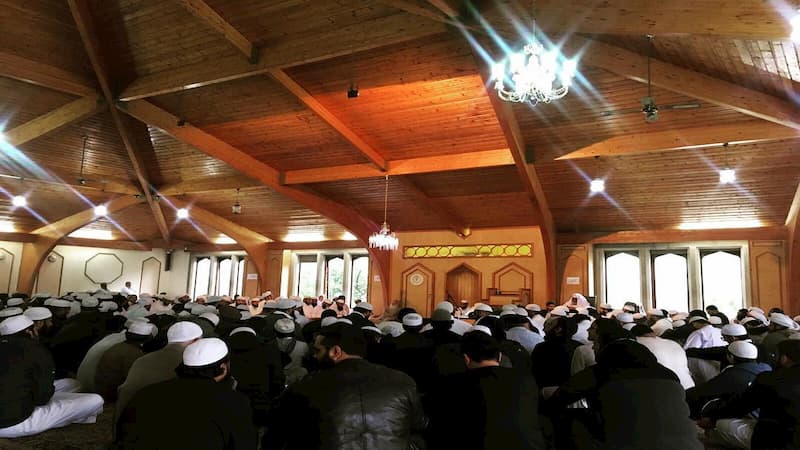

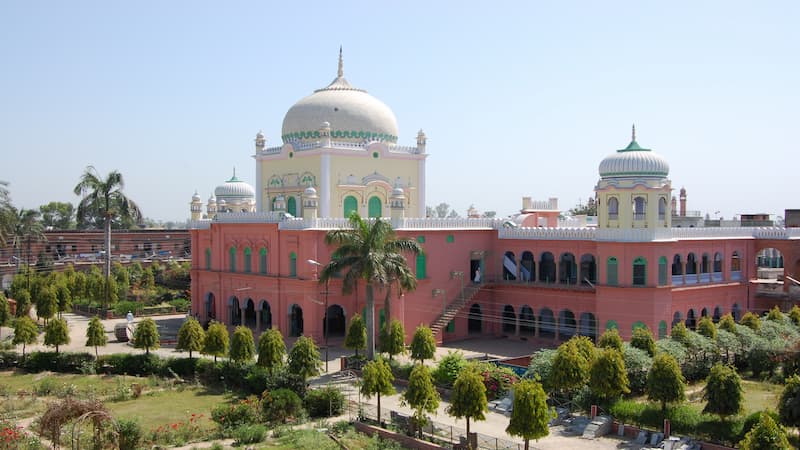
Explore The Wealth of Traditional Islamic Sciences
The Islamic traditional sciences have always been growing disciplines in response to diverse sociopolitical, philosophical and scientific challenges. A deeper analysis of Islamic normative positions related to a diverse range of important modern issues like logic, metaphysics, artificial intelligence, evolution, Islam and politics, genetics, Islamic psychology and societal ethics in a rapidly changing world, is proving quite challenging and crossing the lines of enquiry which question concepts we have never explored before or ever thought possible. There have been many attempts by Muslim scholars to address many areas of these challenges and their application to new cases. However, these Islamic disciplines have had to grow both horizontally and vertically to the degree that our current application of the wealth of our Islamic tradition to new and challenging issues is unfortunately still in its prime stages. There are immense works of classical Muslim scholars which require intense study with the prospect of it benefiting future generations. Some of these works are in manuscript form and others remain unread except by a few.

Addressing The Contemporary Issues
The horizontal growth is one which requires us to go back to the sources of our classical theology, substantive law, jurisprudence and ethics and tease out the nuances, and essential shariʿ principles that provide the guidance and framework to allow Islamic responses to technical questions. This requires Muslim scholars to have expertise in broader areas of theology, ʿilm al-kalām, tafsīr, ḥadīth, fiqh, language and rhetoric and tārīkh. The vertical growth is where these disciplines have now diversified beyond just classical text, and into many other specialties making it intersect with sciences such as philosophy, epistemology, metaphysics, anthropology, politics and other areas of humanities and social sciences. To meet these challenges requires preparation of Muslim scholars who have expert academic background knowledge of these sciences and the skillset to work closely with others embracing both good leadership qualities and aptitude to deliver the Islamic response that is both appropriate and informed through a multidisciplinary approach.


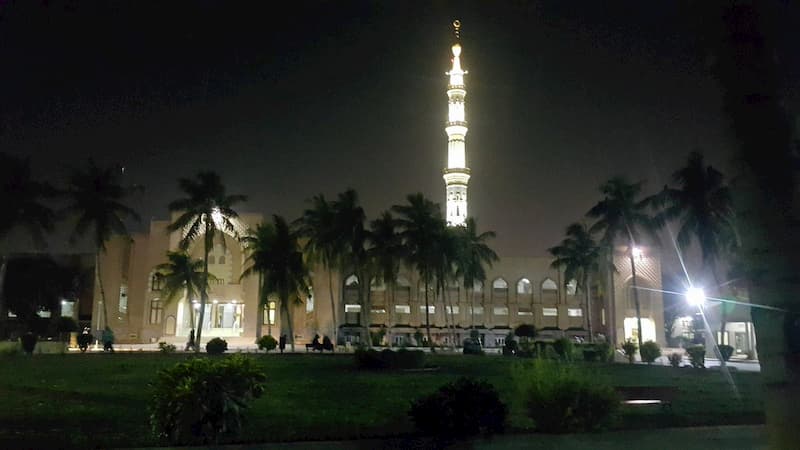
Become One of the Heirs of the Prophet (PBUH) Under the Guidance of Traditional Scholars
The most important aspect of the whole programme will ensure that the beneficial traditional element of madrasa learning is maintained as much as possible. This is to be achieved by ensuring that all our main scholars have been trained and have gone through robust teaching under the tutelage of their teachers through a successive chain of traditional learning that extends to the Prophet (PBUH). The approach unique to our madāris requires students to form an important relationship with their scholars and teachers which is both academic and essential for spiritual and personal development. This traditional approach will be woven throughout the syllabus content and delivery style so that students have a virtual madrasa experience. This is an exciting opportunity for students to learn, develop and connect to a line of traditional ʿulama who have a chain of learning all the way to our beloved Prophet (PBUH). After successful completion of this programme students will receive formal ijāza (authorization) and ʿAlimiyyah sanad enabling them to be included amongst the heirs of the prophets. The goal is to produce Muslim scholars who can contribute to their areas of expertise confidently, to bring about a meaningful impact and to respond to contemporary challenges.

Programme Aims & Objectives
The Program aims to achieve several key objectives:
1. Advanced Expertise in Classical Islamic Text:
– Develop profound understanding of classical Islamic literature.
– Explore chapters from diverse disciplines within classical Islamic theology, fiqh, uṣūl al-fiqh, tafsīr, ḥadīth, and kalām literature.
– Emphasize scrutiny of classical Islamic themes, particularly in the Ḥanafi Sunni schools of jurisprudence.
– Compare and contrast concepts relevant to contemporary contexts.
2. Specialized Knowledge in Contemporary Sciences and Islamic Literature:
– Foster advanced understanding of modern sciences and contemporary fields.
– Apply an academic approach to Islamic ethics and contemporary Islamic literature.
– Critically analyze various facets of contemporary tafsir, kalam, fiqh, and uṣūl al-fiqh literature.
– Contextualize studies within anthropological, sociological, and philosophical paradigms influencing modern Islamic practice.
3. Research, Analytical Skills, and Application of Islamic Tradition:
– Develop advanced research skills and critical analysis abilities.
– Attain high standards in contemporary academic literature writing and advanced delivery.
– Engage in research, learning, and exploration of concepts, theories, and principles in Islamic sciences.
– Understand the profound impact of Islamic tradition on both conventional and contemporary issues.
4. Personal, Professional, Spiritual, and Academic Skills Development:
– Cultivate essential skills for Muslim scholars.
– Participate in skills-based courses to identify and address strengths and weaknesses.
– Emphasize enhancing spiritual self-reflection, emotional literacy, effective communication, and presentation skills.
5. Contribution to Future Leadership in the Islamic Tradition:
– Nurture a new generation of Muslim scholars proficient in various Islamic disciplines.
– Equip scholars to address post-modern world issues through a multidisciplinary approach.
– Guide, identify, analyze, and resolve challenges in theology, philosophy, and anthropology.
– Contribute to the revival of the spirit of Islam in academic literature, committees, and allied industries.
6. Platform for Networking, Career Guidance, and Internship:
– Provide opportunities to connect with internationally recognized Muslim scholars and subject experts.
– Offer professional and spiritual guidance.
– Aim to create a new generation of ‘ulama’ capable of leading the Ummah and making a global impact.
– Facilitate networking and internship opportunities to further students’ practical experiences.
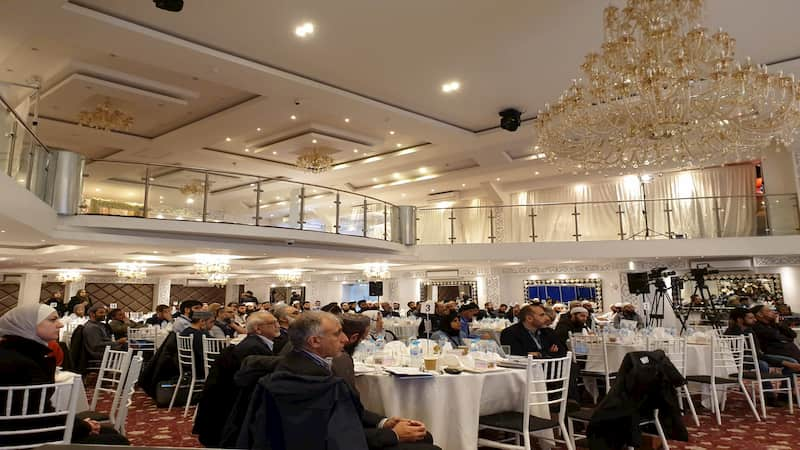
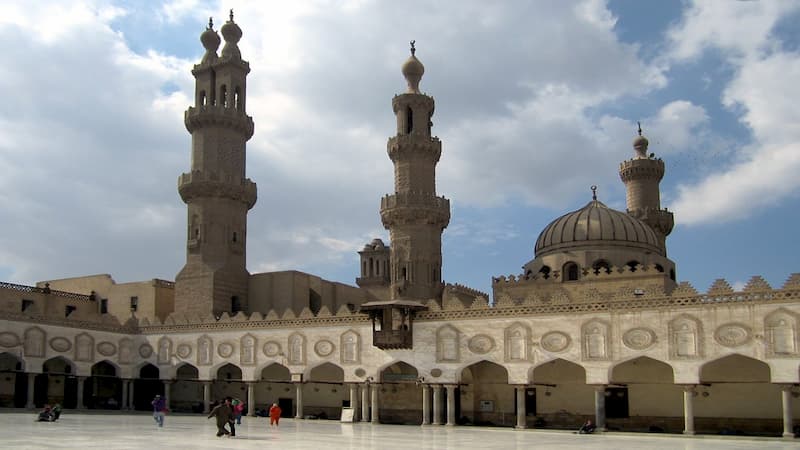
Testimonials
Frequently Asked Questions
Can't take all classes on weekends. Can I draw some classes from weekdays?
Yes, you can swap your classes from weekend to weekdays, as convenient, after consulting with your mentor.
Are Al Balagh courses recognised or accredited?
Al Balagh courses do not provide an externally accredited or recognised qualification. Our own expert team works at the course content. With over 5000+ learners, we are continuously growing and our vision is to make Al Balagh qualifications renowned worldwide through our expert team, without seeking formal accreditation or recognition from external institutional bodies.
How is this online course structured?
Our online course comprises live interactive online sessions, pre-recorded videos, online course material that include, presentations, reading material & online learning activities. Students may ask questions and get their doubts cleared from their respective lecturers, if any. Our dedicated academic support team will assist you as required.
When will I have access to the online course material?
Upon successful enrollment, you will get access to myAlBalagh (our online learning portal) within 24 hours.
Will I get notification for live sessions?
All students will receive notification for their course live sessions via email and/or course WhatsApp group. You may also check the Course Schedule tab on your dashboard after logging in on our website or Mobile App.
Is it mandatory to attend live sessions?
We always encourage attending live sessions among students, but it is not compulsory for technical course progress of the students.
I missed a live session. Can I get the video recordings?
If you are unable to attend a live session or have missed it, you can view recorded sessions on your course dashboard. You can access all the completed Recordings, PPT and assessments anytime.
How many study hours do we have to dedicate (part-time)?
How many study hours do we have to dedicate (full-time)?
Full time students are expected to dedicate 16 to 20 hours for live online classes and 10 to 12 hours for revision and self study
Do I get marks for watching course recordings and presentations?
There are no additional marks for watching the course recordings. Only the module Assessments and the final exam add up to the final score.You can check the individual scores of your Assessments under the Progress tab of myAlBalagh.
I have doubts but I cannot attend the live session. Any other way to ask my questions?
You can discuss your doubts via Course WhatsApp Group dedicated for student discussion or access the Discussion Board on myAlBalagh. It is a platform for you to ask questions, discuss and get your doubts cleared.
When will the final exam be held?
The Final Exam will be held at the end of the course and will be a Graded And Timed Exam.
How do I interact with my classmates?
You can interact with your classmates on our Whatsapp Group exclusive for the course students. Furthermore, you can use the Discussion Board to connect with other course students as well.
How long will I have access to the online course?
You will have access to the online course content for up to 2 years. If you want lifetime access, contact our admin team via Email at [email protected].
I am facing trouble signing into the “myAlBalagh” Online Student portal. What should I do?
In case you find any trouble accessing your account, then please contact us immediately. Our dedicated support team will ensure that your problem gets resolved at the earliest.
How can I apply for the Al Balagh Scholarship?
Al Balagh Academy values seekers of knowledge more than anything. Please visit here to apply for a scholarship. Our team will assess your application and respond in 2-3 working days.
Can I download the recordings and watch it offline?
You can download recordings and PPT of the course sessions from the myAlBalagh mobile App for all the enrolled courses.The recordings will be available for students after 48 hours of the live session.


